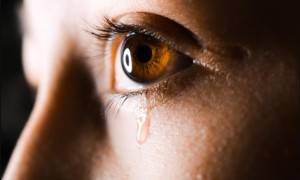导读:还记得徐志摩的那首《再别康桥》吗?一首短小的诗歌把世界顶级学府剑桥大学的美景描绘得如痴如醉。可是近日,英国《每日邮报》报道,剑桥大学遭遇了前所未有的“虫鸟危机”,这是怎么回事呢?一起来了解下!

The lawns of Cambridge University are being torn apart by crows feasting on bugs after an EU ban on a pesticide.
在欧盟对杀虫剂下达禁令之后,剑桥大学的草坪便遭受着以臭虫为食的乌鸦的毁坏。
Lawns at seven colleges have been blighted by birds digging up ground in search of the chafer bug, a beetle that lives in soil and feeds on grass roots.
七所学院的草坪已被鸟类催残,它们在地面上翻土,寻找金龟子——一种生活在泥土当中以草根为食的甲壳虫。
The population has soared since an EU-wide ban on a spray containing a chemical called imidacloprid.
自从欧盟全体成员国对含有吡虫啉这种化学物质的喷雾剂下达禁令之后,金龟子的数量就开始急剧上升。
The problem is so severe at two colleges, Jesus and Pembroke, that the lawn is being replaced.
该问题在耶稣学院和彭布罗克学院显得尤为严重,它们草坪正在被虫鸟取代。
Gardeners have introduced nematodes, microscopic worms that eat chafer grubs in a bid to combat the problem but the method is not proving entirely successful.
园丁们已经引入了线虫——一种以金龟子为食的微型蠕虫——试图解决这个问题,但是该方法的效果并不显著。
A post on the Jesus College Facebook page said: ’The situation has become quite severe over the last two to three weeks and large areas of lawn have suffered as a result, First Court in particular.
耶稣学院脸书上的一条帖子说道:“在过去二三个礼拜,情况变得十分严重,大片草坪遭殃,尤其是第一庭院内的。”
’The use of nematodes has proved unreliable.’
“事实证明,使用线虫并不可靠。”
Paul Gallant, head gardener of Selwyn College, said the damage is worse at some colleges than others because the grubs only thrive in some types of soil.
塞尔温学院的园长保罗.加伦特表示,各学院草坪的损害程度不一,因为幼虫仅在某些类型的土壤内繁殖。
He said: ’The grubs like light sandy soil like the soil at Selwyn. Wolfson and Robinson don’t have the problem because they’re on clay.’
他表示:“幼虫喜欢像塞尔温学院那样的细砂土。沃尔森学院和罗宾逊学院就没有碰上这类麻烦,因为它们都是黏土。”
The chemical imidacloprid was one of three pesticides harmful to bees banned in April 2013.
化学药品吡虫啉是对蜜蜂有害的三种杀虫剂之一,已于2013年4月被禁。
The problem could improve over winter as the cold weather will force the grubs deeper into the soil and out of the reach of crows.
该问题在冬天的时候可得到改善,因为寒冷的天气会促使幼虫深入土壤,乌鸦也捕捉不到了。







